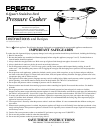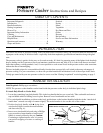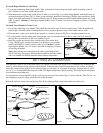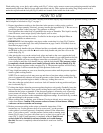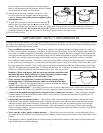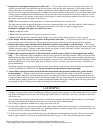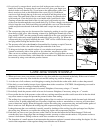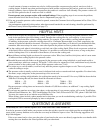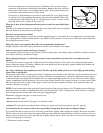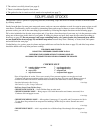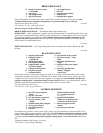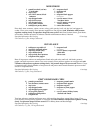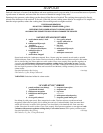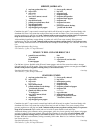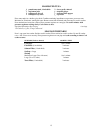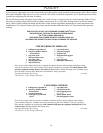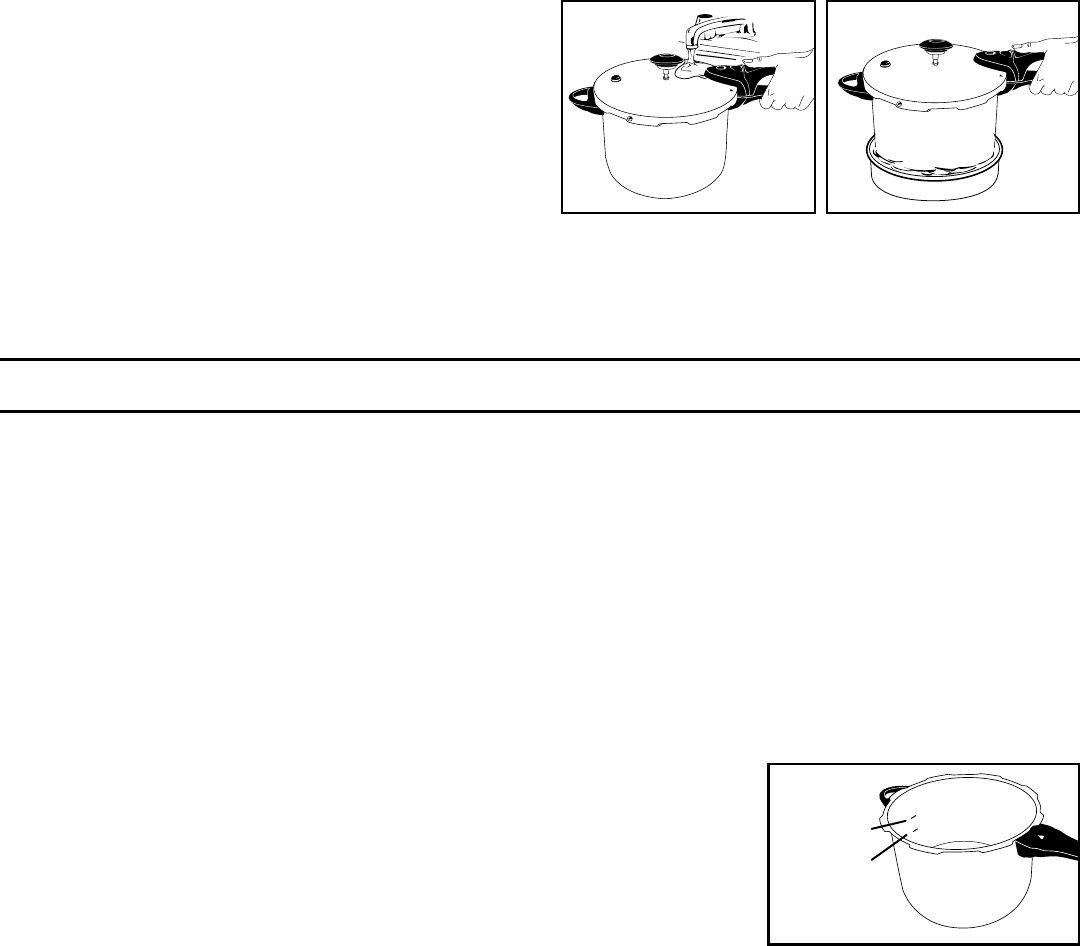
5
If the air vent/cover lock remains in its raised position,
there is still pressure inside the pressure cooker. Continue
to cool until the air vent/cover lock drops.
10. After pressure has been completely reduced, i.e., the
air vent cover lock has dropped, remove the pressure
regulator. Always remove the pressure regulator before
opening the cover.
11. To open the cover, turn it counterclockwise until the
mark on the cover aligns with the mark on the body
handle. Then, lift the cover toward you to keep any steam away from you. If the cover turns hard, there still may be
some pressure in the unit. Do not force the cover off. Continue to cool the pressure cooker until steam no longer is
escaping from the vent pipe, the air vent/cover lock has dropped, and the cover turns easily.
12. Food is ready to serve.
ImporTanT safeTy
InformaTIon
Cooking under pressure enables you to prepare food both quickly and deliciously. If used properly, your pressure cooker is
one of the safest appliances in your kitchen. To ensure safe operation, make sure you always observe the following simple
rules whenever you use the pressure cooker:
1.
Never overfill the pressure cooker. — The pressure regulator is designed to maintain cooking pressure at a safe level.
It relieves excess pressure through the vent pipe as it rocks back and forth. Many foods tend to expand when cooked. If
the cooker is overlled, expansion of food may cause the vent pipe to become blocked or clogged. In the event that the
vent pipe becomes blocked, there are two backup safety devices which are intended to release excess pressure: the pres-
sure relief valve and the overpressure plug. It is possible, however, to block them as well if the cooker is overlled.
Do not ll the cooker more than
2
⁄
3
full when cooking most foods. When cooking foods that foam, froth, or expand, such
as rice, grains, dry beans and peas, or foods that are mostly liquid, such as soups, never ll the cooker more than
1
⁄
2
full.
For your convenience, both the
2
⁄
3
and
1
⁄
2
full levels are marked by indentations on the side of the pressure cooker body
(Fig. M). The upper marking indicates the
2
⁄
3
full level and the lower the
1
⁄
2
full level. In addition, in each section of the
recipes you will nd instructions on the maximum ll level for each type of food.
Reminder: When cooking any food, do not let any portion extend above the
maximum fill mark. When cooking rice, grains, dry beans and peas, soups,
and stews, the cooker should never be more than
1
⁄
2
full.
2. Never pressure cook applesauce, cranberries, rhubarb, cereals, pastas,
dried soup mixes, or dry beans and peas which are not listed in the chart
on page 29. — These foods expand so much as a result of foaming and frothing
that they should never be cooked under pressure.
3. Always add cooking liquid. — If an empty pressure cooker is left on a hot burner or if a cooker boils dry and is left
on a heated burner, the cooker will overheat excessively causing possible discoloration and/or damage to the cooker.
4. Always look through the vent pipe before using the cooker to make sure it is clear. — If the vent pipe is blocked,
it cannot function as it should and thus cannot relieve excess pressure. Pressure may then build to unsafe levels. To
clean the vent pipe, see page 6.
5. Always fully close the pressure cooker. — The cooker is fully closed when the cover handle is directly above the
body handle. Your pressure cooker has specially designed lugs on the cover and body which lock the cover in place
when the cooker is fully closed. However, if the cooker is not fully closed, the lugs cannot lock the cover onto the
body. It’s possible that pressure could build inside the cooker and cause the cover to come off and result in bodily
injury or property damage. Always be sure the cover handle is directly above the body handle (see page 4, Fig. H). Do
not turn past handle alignment.
6. Never open the cooker when it contains pressure. — The air vent /cover lock provides a visual indication of pres-
sure inside the cooker. When it is up, there is pressure. When it is down, there is no pressure in the cooker and it can be
opened.
If the pressure cooker is opened before all of the pressure is released, the contents of the cooker will erupt and could
cause bodily injury or property damage.
Fig. K Fig. L
2
⁄
3
ll line
1
⁄
2
ll line
Fig. M



